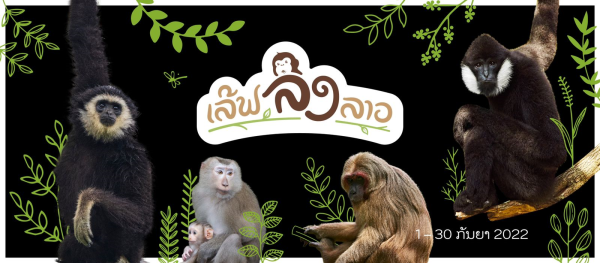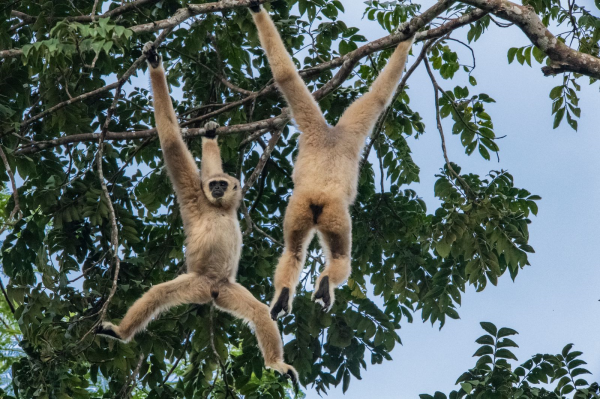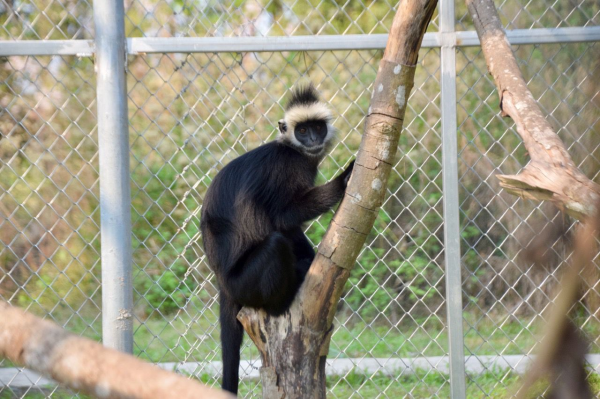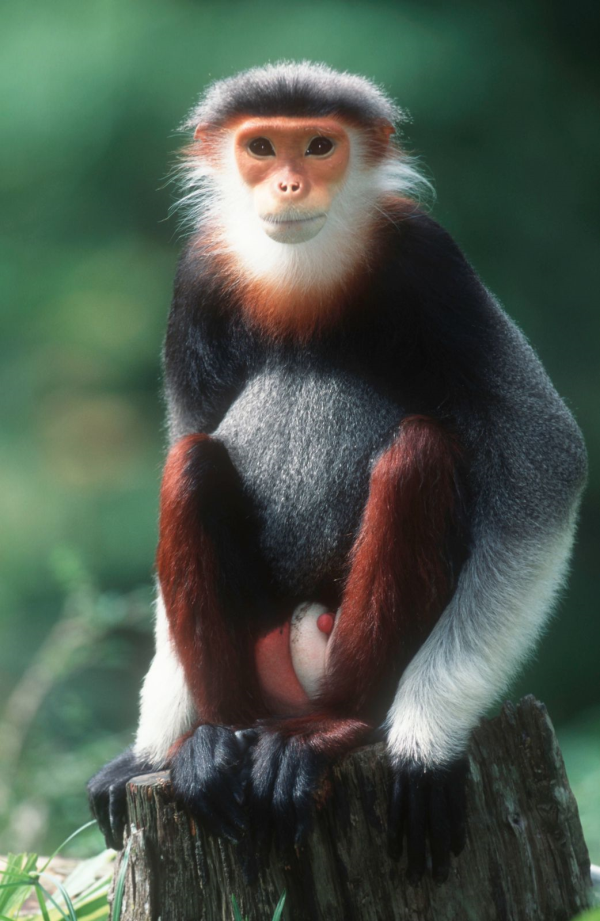KPL
(KPL)With a kick-off on International Primate Day, the Worldwide Fund for Nature (WWF) will spend the whole month celebrating the 19 non-human primates that call Laos home!
“Love Ling Lao” aims to enhance national pride for the 19 species that call Laos home and build support for urgently-needed conservation of threatened primates.

(KPL)With a kick-off on International Primate Day, the Worldwide Fund for Nature (WWF) will spend the whole month celebrating the 19 non-human primates that call Laos home!
Building on enthusiasm for primates on social media, the “Love Ling Lao” (“Love Lao Primates” in English) campaign is highlighting the primates that live in Laos and increasing the public’s knowledge about these wonderful species, where they can be seen safely, and how to help protect them for future generations.
Laos has 19 primate species that live in various habitats, with one species — the Lao Langur — and one subspecies — the Lao black-crested gibbon — existing nowhere else in the world. Sadly, many of these primates are threatened with extinction. 15 of the 19 species are categorized as Endangered or Critically Endangered in the latest IUCN Red List update, and only one is considered to be of Least Concern.

"Laos has an amazing diversity of primates, with some species living in only one landscape or protected area," says Anita Bousa, Endangered Species Manager for WWF-Laos. "While this can mean their survival is precarious, it creates an opportunity for us and our partners, in collaboration with the government, to make concerted and targeted conservation efforts so that Lao people, and the world, can enjoy these species, and the vital ecosystem services they provide, for many years to come."
Earlier this year, two baby primates, Baiboon and Baibua, an Assamese macaque and an Indochinese grey langur, garnered a huge amount of attention online after they were confiscated by the Lao government from their captor who had been flaunting them on social media.

The two monkeys were confiscated because it is illegal to own primates and other wild animals in Laos without a proper permit. Although the initial response from the public was one of outrage, the Lao Conservation Trust for Wildlife, where the primates had been placed by the government, has been working tirelessly to rehabilitate these two juveniles and socialize them with members of their own species.
They have also used the incident to educate the public about why keeping primates as pets is neither good for the primates, nor for people. Many infant primates are sold as pets after their parents are killed for meat or medicine, and they rarely receive the correct diets or socialization to have fulfilling lives. Inevitably, this leads to unhealthy primates that are no longer viable pets but are unfit to release into the wild. Primates are also potential reservoirs of disease, including rabies, monkeypox, and even Covid-19, making their trade and captivity a public health hazard.

"Laos not only has a diversity of primates — it has great conservation scientists who are committed to ensuring primate survival well into the future," shared Loris Palentini, Country Director for WWF-Laos. "If we work together and garner enough public support to address threats like habitat destruction, hunting, and the illegal wildlife trade, we can reverse the worrying downward population trends and ensure that Laos remains a place where the songs of gibbons are still heard along with the chatter of langurs and lorises."
KPL